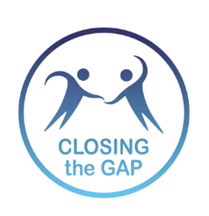Learning from lived experience in research

Research is only useful if it is meaningful to the populations it serves. That’s why working alongside people with relevant personal experience is essential in research. By listening to and learning from people with relevant lived experiences, you’re more likely to create useful mental health research that makes a difference. This is something that the UKRI mental health networks have excelled at.
Lived experience involvement is when researchers listen to and learn from people with personal experience of mental health problems. This can look like many different things: from helping to set research priorities, to advisory panels, to conducting research themselves or disseminating research findings.
Lived experience involvement has been at the heart of the UK Research and Innovation (UKRI) funded mental health networks. From priority setting to dissemination of findings, people with lived experience have been involved in every step of the networks’ journies, resulting in fantastic co-produced research, resources and guides.
Here we’ve highlighted one great example of co-produced work from each network, focusing on useful guides and tools to aid your research, and inspiring co-produced projects. We hope these are valuable resources that inform your research and inspire you to build upon the existing work of the networks.
These are just some of the best examples of centring lived experience in research from across the networks. If you’re interested in finding out more, we’ve linked even more examples below.
 TRIUMPH
TRIUMPH
The TRIUMPH Youth Advisory Group (YAG) are currently being supported to conduct their own research. The “Feeling Understood” project is looking at the importance of supportive relationships for mental health and how adults can support young people to feel better understood. While it is widely acknowledged that having good relationships with trusted adults can support young people’s mental health, less is known about what makes a ‘good relationship’.
The young people leading this project identified feeling understood as a crucial component of building strong relationships and chose to explore this topic through their own research. This project is still ongoing, but keep an eye on TRIUMPH’s website for outputs soon!
 Loneliness and Social Isolation in Mental Health Research Network (LSIMHRN)
Loneliness and Social Isolation in Mental Health Research Network (LSIMHRN)
LSIMHRN reached out to their CoProduction Group members (CoG) to ask them for their tips for running a lived experience research group successfully. This clear guide is jam-packed with useful information for anyone looking to do the same.
Benefits and tips for running a lived experience research group
 Violence and Abuse Mental Health Research Network
Violence and Abuse Mental Health Research Network
Lived experience advisory group webinar – Arts Funding Competition. Lisa Ward (VAMHN Lived Experience Involvement Coordinator) and Lived Experience Advisory Group members Winnie and Deborah share what good and bad practices look like for lived experience involvement in mental health research. Although this was for the VAMHN arts funding competition, which has now closed, there are lots of tips that can be applied to any research.
 eNurture
eNurture
This guide is a ‘living’ document that continues to be informed by ongoing work with young people, researchers, practitioners, and other mental health professionals working with eNurture. It was created and informed by young people working with eNurture supported by the Association for Young People’s Health and with comments from pupils and teachers from primary and secondary schools working to promote eNurture objectives.
 SMaRteN
SMaRteN
Pilot study of a Student-led Peer Support Wellbeing Programme
This was a 12-week student-led peer support programme for first-year undergraduates focused on enhancing wellbeing and resilience was designed by students for students, which was then implemented and evaluated. Key to the programme was students choosing topics to be delivered and peer students involved in content design and programme delivery so they could contribute their own experiences to support follow on years.
 Emerging Minds
Emerging Minds
CoRAY Resources for Young People
Emerging Mind’s CoRAY project worked with partners including Headliners UK, Fully Focused productions and the McPin Foundation to co-create a number of evidence-informed resources by young people for young people. These resources are aimed at 11-16-year-olds and include podcast episodes around managing change and uncertainty, infographics to help young people who are feeling flat and unmotivated and a drama series focusing on dealing with feeling lonely and isolated.
Closing The Gap
SPACES – supporting physical activity through coproduction for people with severe mental illness
SPACES is a project that explores the barriers to physical activity for people with severe mental illness (SMI). The research was created in collaboration with people living with SMI to develop an intervention to help people with SMI become more active.
Watch the Research Sofa Episode on this project here
 MARCH
MARCH
This paper addresses the gap in understanding of what the barriers to, and enablers of, working with individuals with mental illness might be for the community and voluntary sector. MARCH researchers used a qualitative approach involving focus groups with non-profit organisations delivering social activities within communities across the United Kingdom.
More Examples
It was fiendishly difficult to pick just one example of lived experience involvement per network. if you are looking to find out more, we’ve added more examples below, themed by stages in the research journey.
Check out our other core themes for good mental health research here:
- Inclusive research that tackles inequalities
- Multidisciplinary working
- Partnership working outside academia
Catch up with the Experts by Experience Mental Health Research Matters webinar, organised by the Mental Health Research Matters steering group
